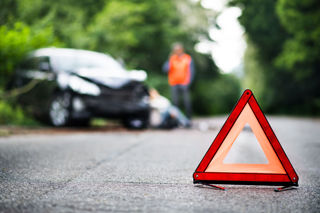Proposals to ban drivers under the age of 25 from carrying young passengers as part of a ‘graduated driving licence’ scheme have been broadly welcomed by fleets.
However, some have suggested that any changes to the licensing regime should avoid penalising those who drive for work.
Road safety charity Brake say drivers under the age of 25 are four times more likely to be involved in a fatal crash if they are driving with others - claiming peer pressure leads to young motorists showing off.
New restrictions would see amendments made to the Road Traffic (New Drivers) Act to ban passengers under the age of 25 in the driver's first year or six months.
The Act already bans drivers if they get six points in their first two years of driving.
It has been backed by Support for Victims of Road Crashes - an advisory to the Department of Transport (DfT) - and National Police Chief's Council Roads Policing lead Jo Shiner.
Extra restrictions on newly qualified drivers, which would have seen curfews and limits on passengers in the car, were dismissed in January 2022, because there was a recognition that young drivers needed to use cars for employment.
Government statistics show as many as a quarter of new drivers are involved in accidents in their first two years on the road.
The Government met with road safety campaigners last month (May) to discuss the proposals.
Discussing the issue on the most recent Fleet News at 10 webinar, Paul Hollick, chair of the Association of Fleet Proposals (AFP), said: “I’ve seen friends lose children, because of young drivers driving erratically at night, so I’m fully supportive of the proposals.
“I think we've just got to appreciate that it takes quite a while to get experienced in terms of road flow, motorways and driving that you don't necessarily do during your driving lessons and your driving test.”
Appearing alongside Hollick, Dale Eynon, director of Defra Group Fleet Services, said: “We employ a lot of graduates and we have looked at changing the rules around whether we have higher restrictions on our younger drivers who are under 25.
“Do we limit the cars we provide them with for business purposes or do we restrict them in other ways?”
However, he highlighted how analysis of its driver data had shown that the young drivers it employs are not a high risk.
“They are no higher risk in terms of the number of collisions or the number of speeding fines, or parking fines,” he said.
“I wonder how much of this is driven by people who probably don't even have a licence who are involved in collisions.”
He welcomed the effort to improve road safety but questioned whether any new rules should differentiate between those who drive for work and those who do not.
Lorna McAtear, head of fleet at the National Grid, was similarly concerned at tarring all young drivers with the same brush.
She told Fleet News at 10: “It’s the risk of unintended consequences on this and actually what we seem to be doing is for those that are gung-ho, we’re penalising everybody else that's actually okay.”
Chris Connors, head of facilities and fleet at Vistry Group, also believes enforcing the new rules would be “challenging”. “How would you know how old somebody is sitting in a passenger seat if you limit it to 25 and under,” he said.
Fleet News at 10 features a guest panel of leading fleet decision-makers discussing the month’s biggest news and hottest industry topics.
The next webinar take place tomorrow (Friday June 30) from 10-11am. Register for free here.























Login to comment
Comments
No comments have been made yet.